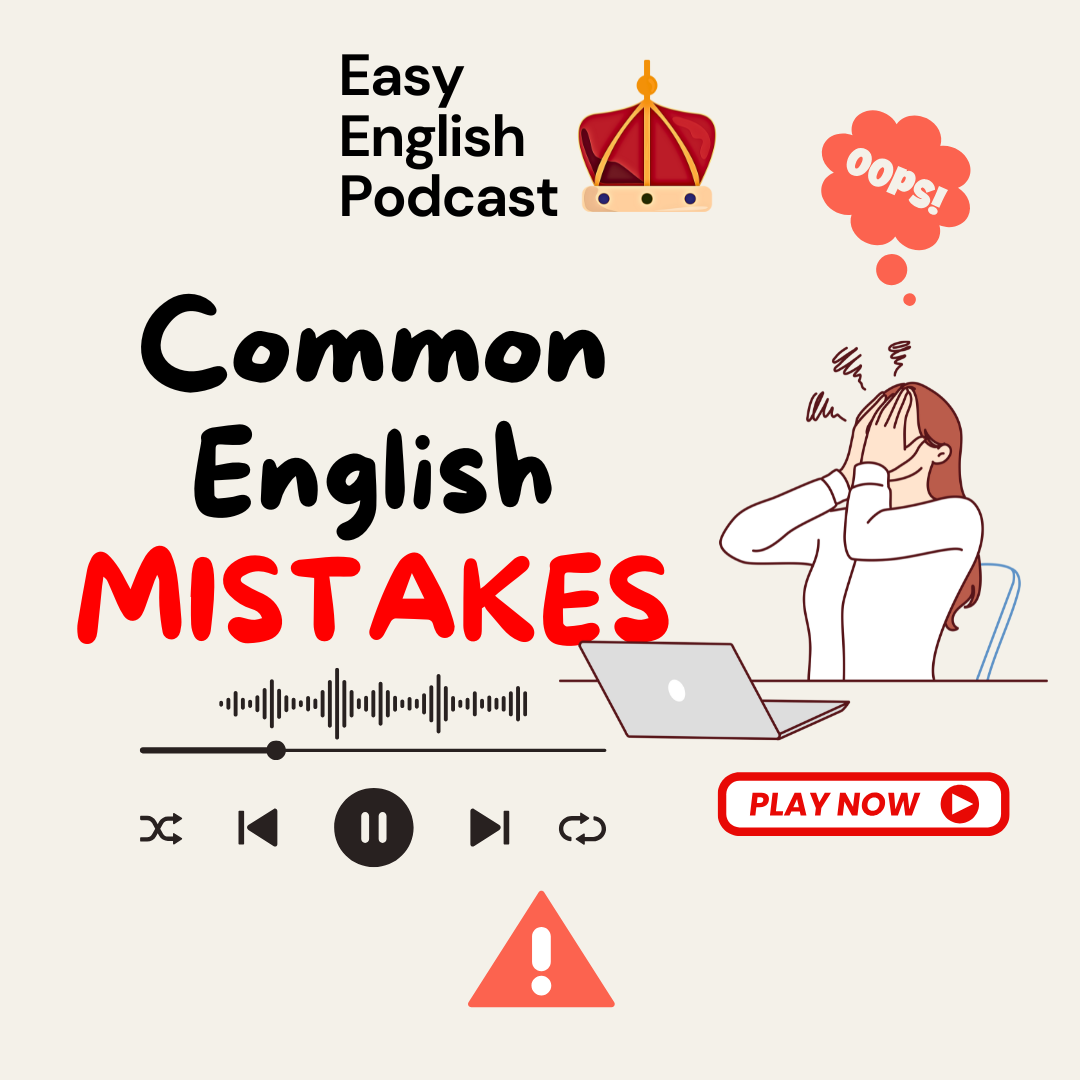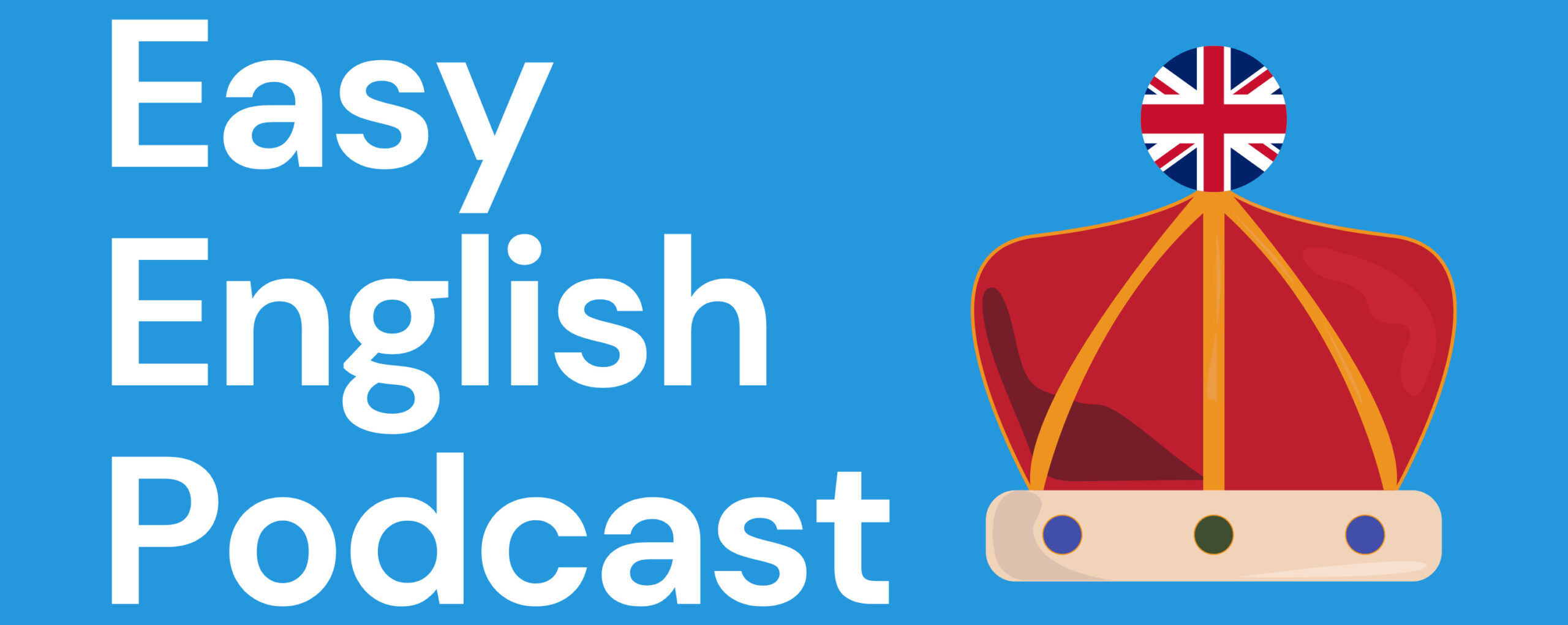
Common English Mistakes Your Probably Making
Welcome back to the Easy English Podcast, and today we are talking about a topic that every English learner faces: common mistakes. Mistakes that everyone makes—or at least a lot of us—when we are learning and speaking English.
I’m Oliver, and today we will look through these different mistakes and see some examples. This will allow you to think about how you speak and maybe find ways to improve your language too. So, like the video if you enjoy this topic, and subscribe if you’re new. Let’s get started!
Easy to Make, Easy to Fix
Whether you are just starting out or have been learning English for years, some mistakes are easy to make but also easy to fix. Let’s break them down and explore how to improve, step by step.
Mistake 1: Using the Wrong Prepositions
Prepositions might seem like tiny words, but they are very important in English. They connect ideas and give details about time, place, and direction.
For example, learners often say, “I’m interested for learning English.” But the correct sentence is, “I’m interested in learning English.”
Here’s another common mix-up:
Incorrect: “I’ll meet you in Monday.”
Correct: “I’ll meet you on Monday.”
In English, we use on for days and in for months or years. For instance:
- I was born in November.
- She was born in 2001.
Although prepositions might feel confusing at first, they often follow patterns. By reading and listening to native speakers, you’ll start to notice and naturally copy these patterns. That’s why it helps to listen to this podcast!
Mistake 2: Confusing Singular and Plural Forms
Confusing singular and plural forms is a mistake I hear often. These forms can be tricky, especially if your native language has different rules.
Here’s an example:
- Incorrect: “My friend are coming to the party.”
- Correct: “My friend is coming to the party.”
When using are, we say: “My friends are coming to the party.”
Another example:
- Incorrect: “I have two book.”
- Correct: “I have two books.”
Be mindful of irregular plurals, like:
- 1 sheep, 3 sheep (not sheeps).
- 1 child, 2 children.
Paying attention to these details will help your English sound more natural.
Mistake 3: Misusing Articles (a, an, the)
Articles are small words but often cause problems, especially for beginners.
Use a before words starting with a consonant sound:
- a car, a book.
Use an before words starting with a vowel sound:
- an apple, an hour.
The is for specific things:
- I’m going to the park (a specific park).
- I’m going to a park (any park).
Articles are not used for general ideas. For example:
- Correct: “Dogs are friendly.”
- Incorrect: “The dogs are friendly” (unless referring to specific dogs).
Mistake 4: Overusing “Very”
Many learners (and native speakers) overuse the word very. For example:
- Very hot.
- Very tired.
Instead, try stronger adjectives:
- Freezing instead of very cold.
- Starving instead of very hungry.
- Overjoyed instead of very happy.
This will make your English more interesting and expressive.
Mistake 5: Translating Directly
Translating directly from your native language is a common trap. I did it when I was learning Russian, and I still do it sometimes.
Languages have unique grammar, phrases, and sentence structures. For instance:
- In some languages, you say: I have 30 years.
- In English, you must say: I am 30 years old.
The solution? Learn English in context. Focus on phrases and sentences rather than individual words. Also, try to think in English instead of your native language—it takes time but makes a big difference.
Final Thoughts
Thank you so much for listening to this episode! Those were some common mistakes you might be making in English. I hope this helps you improve your speaking, writing, and understanding. Have a fantastic day, and I’ll see you in the next episode. Goodbye!
Vocabulary Definitions
- Prepositions: Words that show the relationship between other words (e.g., on, in, at).
- Mix-up: A mistake or confusion between two things.
- Irregular plurals: Words that do not follow standard plural rules (e.g., child → children).
- Specific: Clearly defined or identified.
- Context: The situation or information around something that helps explain its meaning.

